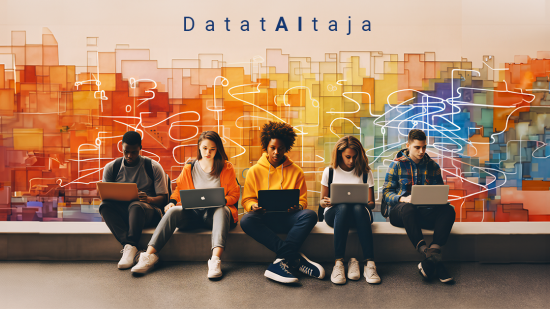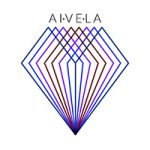In addition to its importance to human resources management, identifying skills has wider implications for the organisation. According to human resources manager Eriika Rieppo of Laurea University of Applied Sciences, the development of staff skills also contributes to well-being at work and employee engagement.
“When staff are given opportunities to develop their skills and the skills are systematically identified, job satisfaction improves and, in the process, the organisation becomes a more attractive employer.”
Pro-learning organisations stand out from their competitors. They attract highly skilled employees as well as retaining existing staff. As TIEKE’s accelerator of digital skills Merja Sjöblom points out, skills development should be a permanent part of an organisation’s strategy:
“Supporting continuous learning is a way of showing staff that their skills are valuable and important to the organisation’s success.”
Open Badges: a modern way to identify and harness skills
Digital Skills Open Badges have become more widespread in the education sector in particular, but they are showing potential in professional contexts as well.
Open Badges are visual, digital proof of a person’s skills, containing information on the criteria and methods of demonstrating them. They are easy to share and to integrate with HR systems.
TIEKE has been highly active in developing and promoting the use of Open Badges. “We are involved both in creating Open Badges for different projects and in helping organisations to customise their badges. Companies can use the badges to monitor and identify skills and to anticipate development needs,” Sjöblom explains.
At Laurea University of Applied Sciences, for example, Open Badges are used to develop and identify data security skills, among other things.
“Open Badges help us not only to identify employee skills, but also to clarify our targets for staff skills and systematically monitor their development.”
Eriika Rieppo, Human Resources Manager, Laurea University of Applied Sciences
Informal knowledge can be an organisation’s greatest untapped asset
In many organisations, skills are not systematically monitored or recorded, which is a major problem. Open Badges are a solution to this. They allow organisations to collect skills-related data that can be used for planning training, strategic decision-making and more.
Developments at European Union level, such as the promotion of micro-credentials, support the wider uptake of Open Badges. Hanna Vuohelainen, accelerator of digital skills and communication at TIEKE, points out that micro-credentials make it possible to identify skills in smaller parts:
“This approach is a response to the need for continuous learning, and it makes skills transparent for the individual and organisation alike.”
Collaboration is key to identifying and developing skills
Identifying and developing skills often requires collaboration between different parties. For example, in the Circular Economy Open Badges project coordinated by TIEKE, AFRY and Turku University of Applied Sciences, a badge system was developed through multi-stakeholder collaboration to identify existing circular economy expertise within pilot organisations. The pilot also enabled organisations to clearly identify their training needs.
“Through internal and external collaboration within an organisation, skills can be identified and developed in a systematic and targeted way,” Sjöblom says.
TIEKE provides ways to build a competitive knowledge culture
Identifying and developing skills is crucial not only for staff well-being but also for the organisation’s competitiveness.
Has your organisation considered how to identify staff skills more effectively and could the Digital Skills Open Badges be the solution for that?
TIEKE provides the means and expertise to help organisations create a learning-friendly culture and use Open Badges effectively. Start your journey towards better identification and development of skills – for the benefit of individuals and the organisation as a whole.
Open Badges benefit employers as well as employees
Open Badges…
- Provide clear evidence of a person’s skills: An Open Badge contains information on the learning goals and assessment criteria, as well as the way in which the skills are demonstrated. Digital format of the badges enables the verification of the badge, ensuring that skills are identified reliably.
- Support recruitment: Open Badges help employers assess job applicants’ skills and find the right people for the right jobs.
- Reveal hidden knowledge: The badges highlight skills that employees have that might otherwise go unnoticed.
- Help in anticipating skills needs: Skills-related data can help organisations identify future training needs and prepare for skills shortages.
- Promote well-being at work: The use of Open Badges promotes a development-friendly culture, which further improves staff job satisfaction.
Open Badges benefit:
- Employers: Open Badges are a valuable means of assessing, developing and strategically planning staff skills. They make the organisation more attractive as an employer.
- Employees: Open Badges provide an easy way for employees to demonstrate their acquired and new skills and to manage and share their knowledge. They promote career development and well-being at work.
- Recruiters: Open Badges help recruiters to assess job applicants’ skills quickly and reliably.










